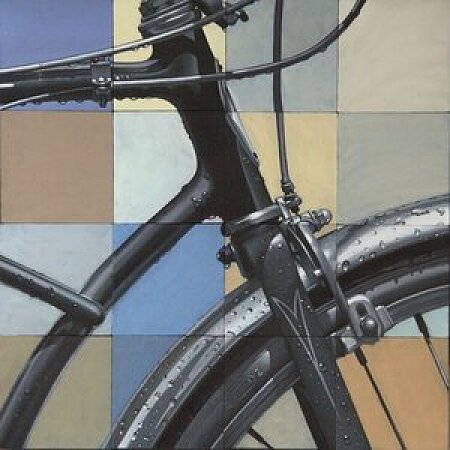
On the Marking of Years
1.
For my son Paul’s fourth birthday, my nine-year old daughter Sophie made a treasure map of all the presents we’d gotten him, hidden around his room. “This is chair,” she said, pointing to the word and the picture. “And this is bed.”
“B-E-D,” he repeated, and followed her instructions, finding one present after the next.
All he wanted, in the end, was the multi-colored balloons she’d blown up, and the confetti that launched from a launcher she’d built herself, from a plastic cup and a chopped-up balloon. She cut up tons of white paper, then sucked them into the cup and launched them in a huge burst of confetti as he walked in, saying, “Surprise.” It reminded me of clouds scattering, when you rise up quickly in a plane. The effect was oddly startling and sweet. But Paul only stared.
She’d learned how, apparently, from a video she’d found online.
Really, she told me later, the video was of a marshmallow launcher—but she thought it could be adapted. There was such a sweetness to her, as she told me, “All through math class, I couldn’t stop thinking of what cake he’d want. I was more excited than he was, I bet.”
2.
Watching them, I was struck by how odd it was, that only four years ago, I was lying back in a surgical room with bright white lights, paralyzed from my waist down, waiting for that loud and undeniably healthy cry. I was holding my husband’s hand and asking him to tell me the commonest things, about what Sophie had had for dinner the previous night, or what time the babysitter had had to leave, or where they’d gone ice skating last afternoon. I was asking him to talk to me and trying to picture those scenes, trying to create such a precise picture in my head that I could block out all thoughts of my body being no longer under control—no longer my body, at least not under the direction of my mind.
And my husband did talk, in such a quiet and calm voice, I believed him for a minute. Rather, I believed that the image he created was the real, living one—that I could enter that image not simply as a stay against terror, but as a real and moving piece of the time. I would not have to get swallowed up by my body’s rebellion, by the drugs the doctors had given me out of grace, out of mercy, to help me not feel the pain I’d otherwise feel.
The paralysis had been a good thing. I would have died if not for those medicines. I’d been out of my body, unable to hold my son, to hear his shockingly raucous cry. He was healthy, he was healthy, his cry told me, and I tried not to fear the strength of that sound. I tried not to look for the future or wrack my brains for memories. I tried not to think of the women before me and those to come. I tried only to focus on that cry. It shook the walls. It stirred me out of my stupor enough to ask: “Who are you, my baby boy? Who will you be?”
3.
Time expands or contracts according to your perception of it, I read. All well and good. But what about when time is no longer time, but a seemingly inevitable series of moments, all dolled up, but with nowhere to go?
